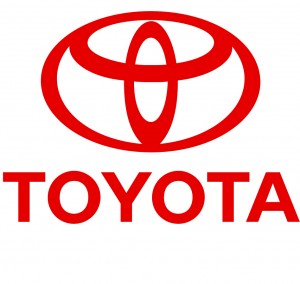
Yet another million vehicles added to recall list, while daily rental companies pull Toyotas from their fleets.
The blowback from Toyota’s recent spate of safety recalls keeps mounting – as does the actual number of vehicles involved.
The automaker has quietly revealed that the recall it first announced last October is expanding by another 1.1 million cars, trucks and crossovers. At the time, Toyota said it would need to make safety-related repairs to 3.8 million vehicles in which it determined floor mats might inadvertently “entrap” accelerator pedals, leading to a loss of control. That number was previously increased to 4.2 million and now stands at 5.3 million Toyota products.
Meanwhile, a number of major car rental chains have announced they will be removing Toyota products from their fleets in a move one firm described as “an abundance of caution.
“It’s bad,” said Dave Sargent, head of automotive research for J.D. Power and Associates. “Their image and their success has been based on building high-quality, safe and reliable products.”
The expansion of the floor mat entrapment recall means a number of other models produced by Toyota will now have to undergo repairs, including:
- 2008-2010 Highlander
- 2009-2010 Corolla
- 2009-2010 Venza
- 2009-2010 Matrix
- 2009-2010 Pontiac Vibe
The latter model is sold through General Motors dealers but was produced at a plant, known as NUMMI, that the two companies previously operated as a joint venture. Based on the same platform as Toyota’s Matrix, the Vibe has been pulled from production now that GM is abandoning the Pontiac brand.
With the announcement of this expansion, Toyota has so far recalled about 3.4 million vehicles since the start of 2010. That compares with just over four million last year, which was itself roughly four times more vehicles than the Japanese maker had previously ever recalled during a single year in the U.S. market.
While Toyota tends to focus on retail customers, its products are in use by a number of daily rental chains. But some are now pulling the maker’s products or at least suspending rentals until the recall issue is fully addressed and repairs can be made. Among those who are acting are:
- Avis, which is pulling 20,000 Toyotas from its U.S., Canadian and Puerto Rican lots;
- Hertz, which will stop renting any vehicle involved in the recalls; and
- Enterprise Holdings, which operates rent-a-car companies Enterprise, Alamo and National, is pulling all vehicles involved in the recalls in, “an abundance of caution.”
The crisis has been worsening almost by the day, for Toyota. Last week, the maker announced it would recall 2.3 million vehicles for a second “sudden acceleration” problem, this involving sticky accelerator pedals. (About two-thirds of these vehicles will also face repairs for the carpet entrapment problem.)
Then, this week, Toyota announced plans to halt production of eight models built at five North American assembly plants, as it struggles to figure out the cause and find a cure for the sticking accelerators. The company also told dealers to temporarily halt sales of those vehicles. Industry estimates say this will result in the loss of as much as 4,000 units of sales daily, worth at least $100 million in lost revenues.
As TheDetroitBureau.com first reported, the problem is no longer limited to the United States. Toyota confirms it will expand the recalls, repairs and other related actions to Europe and China. A further expansion also appears possible.
There was a brief bit of good news, however, the influential Standard & Poor’s Rating Services pronouncing that the latest developments, “will have no immediate impact on the ratings on the company.” But even the S&P report was tempered, adding that, “the suspension (of sales and production) may put downward pressure on Toyota’s earnings, which we believe have entered a recovery phase.
“(Toyota is) taking the right approach, with the recalls,” said J.D. Power’s Sargent, “and in the long-term, it will serve them well, but in the short-term, they’re taking a beating.”

I am noticing that there is no mention of the Prius’ recall for “floormats,” accelerator pedal surges, and or brake issues. It almost seems that is purposely being avoided and as I know first hand it is evident there are problems as well in this Toyota model as well.